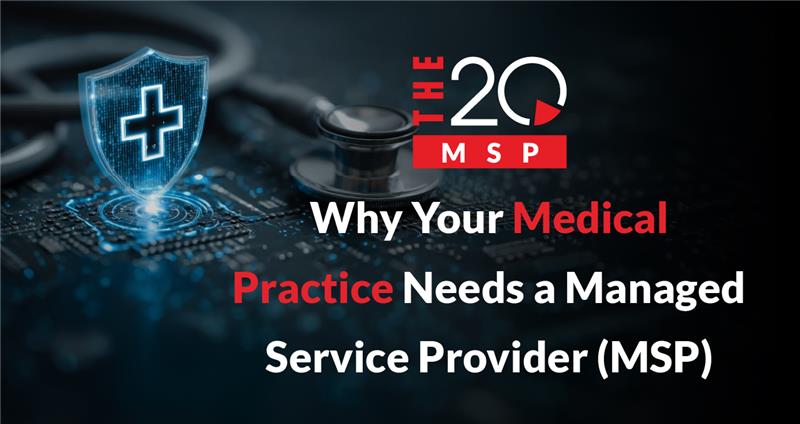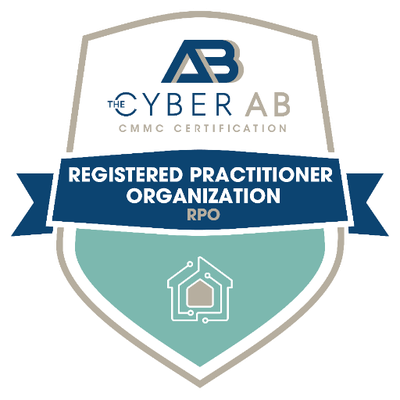
Why Your Medical Practice Needs a Managed Service Provider (MSP)
Zero industries matter more than healthcare. And yet, despite its importance, the healthcare field faces some of the toughest resource constraints out there.
It seems the world expects everything from healthcare providers, while these organizations do their best to deliver (and admirably, at that). From the stress of the job to staffing challenges to the increasing complexity of the workplace, it’s no surprise that medical practices could use all the help they can get.
That’s where MSPs come in.
An MSP can lift the burden from overstretched medical practices by improving, maintaining, and optimizing systems – so providers can focus on what they do best: kicking butt and saving lives.
In this post, we’re diving into why (some) MSPs aren’t just helpful for your medical practice – they’re absolutely essential.
The Technical Challenges of Running a Medical Practice
With so much to manage, it’s no surprise that medical practices face so many IT challenges.
Here are some of the most common problems we see our clients struggling with:
Compliance
Much like in finance, compliance is a constant battle for any medical practice. These regulations exist to protect patient data and system security, but keeping up with them is no small task.
The Health Insurance Portability and Accountability Act, or HIPAA, is the big one, but there’s a long list of other rules every medical practice needs to stay on top of – and the consequences for falling behind can be severe.
Telehealth
Telehealth has skyrocketed in recent years, jumping from just 0.1% of all medical visits in 2019 to around 17% by 2023. Patients love the flexibility – it’s easier to fit into busy schedules, and often more convenient than in-person appointments.
But telehealth doesn’t work without the right infrastructure. From fast, encrypted network connections to secure video-call platforms and reliable hardware, every piece needs to be dialed in for virtual care to run smoothly.
If a medical practice isn’t fully equipped on the tech side, telehealth quickly becomes a frustrating experience – for patients and providers alike. And in a competitive landscape, falling behind on telehealth means falling behind, period.
Patient Portals and Online Services
Most medical practices now offer online portals where patients can review, upload, or receive important information. These tools must work flawlessly – because even small outages or bugs can lead to delays in care.
It takes a reliable, secure IT environment to support these digital services.
Emergency Readiness (24/7/365 Operations)
Medical emergencies don’t run on a 9-to-5 schedule, and neither can your systems. Every medical practice needs technology that’s fast, resilient, and constantly available.
Outdated systems don’t just slow things down – they can endanger lives.
Budget Constraints
Despite their critical role in our well-being, medical practices often operate under tight financial pressure. According to MGMA, 92% of medical group leaders saw their operation costs rise from 2023 to 2024.
And trying to manage IT by yourself? It’s expensive. A single full-time IT pro can cost over $100,000 a year. That’s a huge hit for a smaller medical practice – and one that MSPs are designed to avoid.
How an MSP Turns Challenges Into Wins
Sure, you could keep an internal IT team – but for most medical practices, an MSP is a smarter move. MSPs are experts in handling all the technical bugbears that healthcare organizations face daily.
Here are just a few benefits you can expect when partnering with an MSP:
Specialized Compliance Support
MSPs are compliance experts. If a medical practice is handing over its tech to a third party, that provider must understand industry regulations like HIPAA inside and out.
More than that, a good MSP will track upcoming changes and help your practice stay ahead of the curve.
Security and Recovery
Medical practices are increasingly prime targets for cyberattacks – and yes, small clinics are just as much at risk as large groups like UnitedHealth.
A trusted MSP will install enterprise-grade antivirus tools, encryption, firewalls, and layered cybersecurity defenses.
But beyond prevention, MSPs help your medical practice plan for recovery. Downtime is a nightmare in many industries – but in healthcare, it’s catastrophic. A few minutes offline can have serious consequences. That’s why an MSP makes sure you have regular backups and a recovery plan in place.
Vendor Management
Finding and purchasing the right hardware is hard enough for a standard business – and even tougher for a medical practice needing specialized gear.
An MSP can research, quote, and coordinate purchases with medical vendors to make sure your tech needs are met. Many MSPs even unlock discounts unavailable to solo practices.
Scalable and Adaptable
Technology doesn’t sit still, and your medical practice has to keep pace. Whether it’s migrating to the cloud, handling more remote patients, or rolling out system upgrades, an MSP provides the flexibility you need.
How To Pick the Right MSP
All this may sound great, but not every MSP is built for the healthcare space. In such a sensitive industry, you need an MSP who understands how medical practices actually work.
Here’s what to ask:
Ask About Their Certifications
Is the MSP HIPAA compliant? Do they know how to handle PII and PHI according to legal standards?
This isn’t optional – it’s essential to your medical practice’s credibility and security.
Are They Truly 24/7/365?
Your medical practice runs around the clock. Your MSP should too.
Make sure they’ve got real humans ready to respond whenever something critical breaks.
Check Their Experience
Have they worked with other medical practices before? If yours would be their first, that might be a red flag. You want an MSP who knows the healthcare landscape and has proven they can deliver.
Look at Their Reviews
If they have served other medical practices, don’t just rely on testimonials – do your homework. Ask for referrals. Talk to their clients.
This is your business and your patients’ well-being. It’s worth a few extra calls.
The MSP Difference
At the core of most MSPs is one mission: letting you focus on what you do best. For medical practices, that means helping people. Whether it’s keeping your systems secure, supporting your patient portals, or giving you peace of mind during an emergency, an MSP clears the path so you can provide the care.
But don’t just pick any provider. Choose an MSP who fits your practice and your patients.
And if you need help, reach out.
We work with medical practices across the country, offer flat-rate pricing, and bring proven compliance expertise to the table. Even if we’re not the right fit, we’ll help point you to someone who is.
Want more tips like this?
Subscribe using the form on the right and get our latest cybersecurity insights delivered straight to your inbox.
About The 20 MSP
As a leading provider of managed IT services, The 20 MSP serves thousands of businesses nationwide, including single and multi-location organizations, delivering white-glove service, secure and streamlined IT infrastructure, and 24/7/365 support. We believe in building lasting relationships with clients founded on trust, communication, and the delivery of high-value services for a fair and predictable price. Our client’s success is our success, and we are committed to helping each and every organization we serve leverage technology to secure a competitive advantage and achieve new growth.




